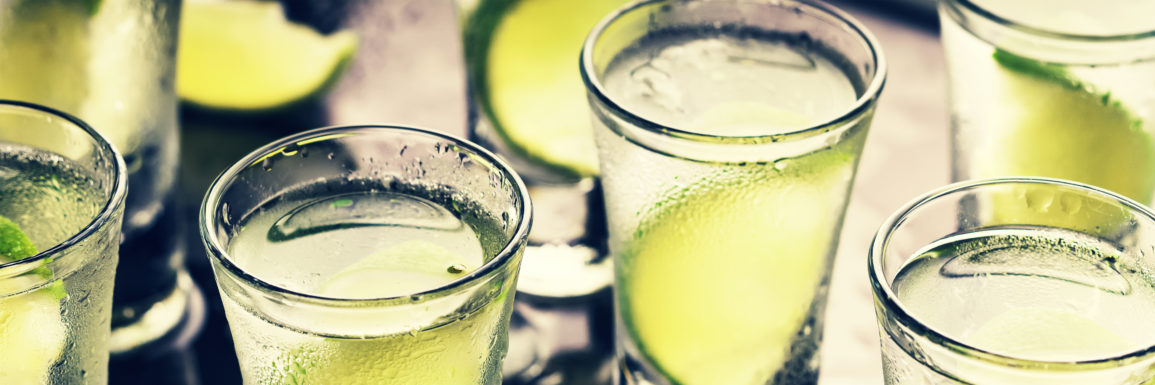Tequila is a denomination of origin (DO) since 1974 ; that means that the areas of production, the variety of agave for Tequila production and the process are strictly regulated. https://www.crt.org.mx
Only the Tequilana Weber agave is allowed to be used for 100% agave Tequila category and sugars from cane or corn may be used to complement 49% in a Mix Tequila category.
The regions of production in Mexico are the entire state of Jalisco and its surroundings.
The regulatory council allows the mix tequilas to be exported and bottled abroad but the 100% agave tequilas must be bottled within DO region in Mexico.
Production : In the Tequila process production, only the heart (piña) of the agave plant is used. The process is based on 4 steps:
- cooking to hydrolyze the inulin into fructose
- milling to extract the sugars
- fermentation with a selected Saccharomyces cerevisiae to convert sugars into ethanol and organoleptic compounds
- distillation in pot stills or columns stills.
Some producers use concentrate juices (syrup) to produce Tequila-like product, in this case they use different techniques to get a Tequila-like profile.
In fermentation, it is important to use a strain of yeast which can ferment fructose and give the required aromatic profile.
Lallemand Distilling recommends DistilaMax TQ due to good performance with different sources of simple sugars providing a complex ester and tropical aroma profile.
DistilaMax LS which provides a complex and more subtle flowery and ester profile, allowing the agave aromas to shine.
DistilaMax SR providing a more neutral aromatic profile.
DistilaMax RM which can be a good alternative to achieve a complex aromatic profile.
In agave juice, more oftern there is a lack of key vitamins and minerals therefore we recommend to use a dedicated nutrition such as DistilaVite in the rehydration and fermentation in order to achieve desired kinetics of fermentation and the expected aromas.
Please, if you have any question, do not hesitate to contact our technical Team who will be happy to assist you.
-
DistilaMax®AG NEW
DistilaMax® AG was selected in Mexico on Agave tequilana (blue agave) juice using Tequila production conditions. DistilaMax AG has the ability to ferment fructose well and to work on a wide pH range. This results in good fermentation kinetics with […][ Read more ] -
DistilaMax® TQ
DistilaMax® TQ has been selected especially for its ability to ferment glucose and fructose in high-stress conditions. DistilaMax® TQ has the killer factor K2, enabling the yeast to outcompete wild yeast in the fermentation. DistilaMax® displays good temperature tolerance and […][ Read more ] -
DistilaMax® LS
DistilaMax® LS has a short lag phase and a fast fermentation rate in a wide pH range (3.25 – 5.3) DistilaMax® LS displays a good temperature tolerance (18°C – 32°C), it is this aspect that makes this strain a reference […][ Read more ] -
The Alcohol Textbook
The Ethanol Technology Institute, led by Scientific Director Dr Graeme Walker, publishes The Alcohol Textbook and conducts both The Alcohol School and Biofuels Academy. The 6th Edition of The Alcohol Textbook is now available. There is no better tool for […][ Read more ] -
DistilaVite®
During the process of alcoholic fermentation yeast, which is a complex living organism, is subject to various stressors: temperature, ethanol, pH, organic acids and others. In order to get a successful fermentation, yeast needs a balanced nutrient package which will maximize its potential […][ Read more ] -
DistilaVite® GN
Yeast is a complex living organism and as such needs a balanced nutrient package to deliver high yield and a consistent congener profile. Lallemand Biofuels & Distilled Spirits studied the needs of yeast to propose a specific blended complex yeast […][ Read more ]

